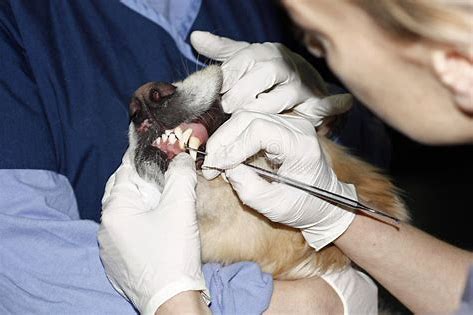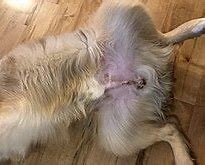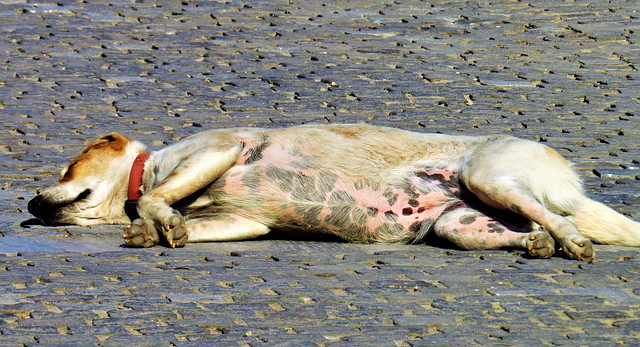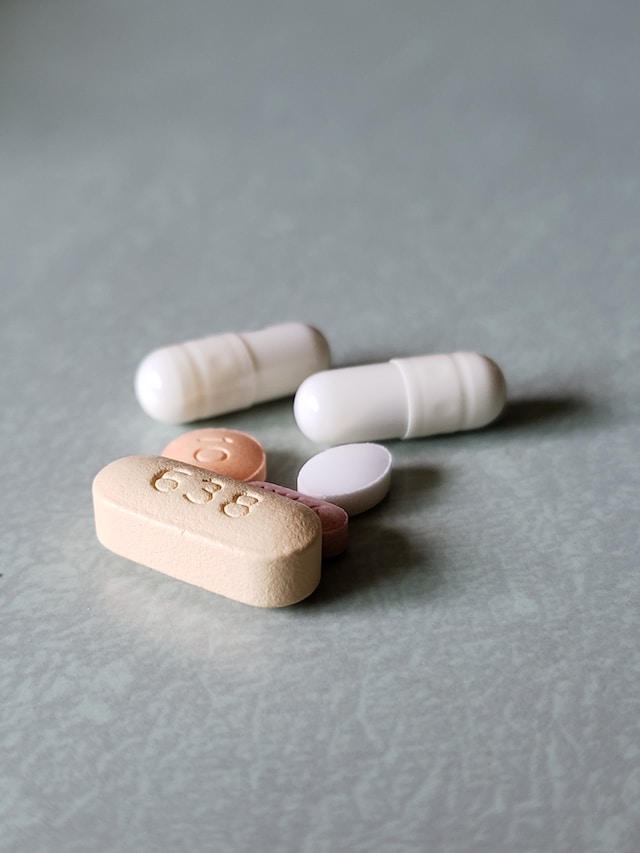How Much Does Dog Teeth Cleaning Cost? (The Surprising Truth)

Are you wondering how much it costs to get your dog’s teeth cleaned? Dental health is just as important for our furry friends as it is for us humans. Neglecting your dog’s dental hygiene can lead to serious health issues down the line.
The cost of dog teeth cleaning can vary depending on various factors such as the location, the vet’s experience, and any additional procedures that may be required. In this article, we’ll break down the average cost of dog teeth cleaning, as well as provide some tips on how to keep your dog’s teeth healthy on a budget.
Average Cost of Dog Teeth Cleaning
Regular dental care is important for the overall health and well-being of your dog. Professional teeth cleaning is a common procedure that helps prevent dental diseases and maintains good oral hygiene in dogs. The cost of dog teeth cleaning can vary depending on various factors, including the location, the veterinarian’s experience, the size and breed of the dog, and additional treatments required. On average, dog teeth cleaning can cost between $200 and $600. Here are some factors that can affect the cost:
- Location: Veterinary services may vary in cost depending on the area you live in.
- Veterinarian’s experience: Veterinarians with more experience or specialized training may charge higher fees.
- Size and breed of the dog: Larger dogs or dogs with specific dental issues may require more time and effort, leading to higher costs.
- Additional treatments: If your dog has significant dental problems, such as tooth extractions or treatment for periodontal disease, the cost may increase.
- Anesthesia: Some veterinarians may include the cost of anesthesia in the overall price, while others charge it separately.
Keep in mind that these are just average estimates, and it’s important to consult with your veterinarian to get an accurate cost estimate for your specific dog. Your veterinarian can provide a personalized treatment plan and discuss any additional fees or procedures that may be necessary. Regular dental check-ups and preventive care can help reduce the need for more extensive and costly dental treatments in the future.
Benefits of Professional Dog Teeth Cleaning
Regular dental care is essential for maintaining your dog’s overall health and well-being. While at-home brushing and dental treats can help, professional dog teeth cleaning provides several important benefits that go beyond what you can achieve on your own. Here are some of the key advantages of professional dog teeth cleaning:
1. Thorough Removal of Plaque and Tartar
Professional dental cleanings involve a comprehensive process that includes scaling, which removes plaque and tartar buildup from your dog’s teeth. This thorough cleaning helps prevent gum disease, tooth decay, and bad breath, ensuring your dog’s mouth is fresh and healthy.
2. Examination of Dental Health
During a professional cleaning, a veterinarian or dental hygienist will carefully examine your dog’s teeth and mouth for any signs of dental problems or oral diseases. Early detection can lead to timely treatment to prevent further complications and discomfort for your dog.
3. Treatment of Dental Issues
If any dental issues are detected during the examination, the dental professional can address them immediately. This could include removing decaying or infected teeth, treating gum infections, or performing other necessary procedures to restore dental health.
4. Pain Relief and Improved Oral Comfort
By addressing dental problems and removing any sources of pain or discomfort, professional teeth cleaning can significantly improve your dog’s quality of life. Your dog will no longer suffer from toothaches, gum irritation, or oral discomfort, allowing them to eat, play, and live comfortably.
5. Prevention of Systemic Health Problems
Poor dental health in dogs can lead to various systemic health issues, including infections that can affect vital organs. Regular professional teeth cleaning can help prevent these problems by maintaining a healthy mouth and reducing the risk of bacteria spreading throughout the body.
Overall, professional dog teeth cleaning plays a crucial role in maintaining your dog’s oral health, preventing dental issues, and improving their overall quality of life. It is recommended to consult with your veterinarian to determine the appropriate frequency of professional cleanings based on your dog’s specific dental needs.
Risks and Considerations of Dog Teeth Cleaning
While professional dog teeth cleaning can have numerous benefits for your furry friend, there are also certain risks and considerations to keep in mind. It’s important to be aware of these factors before scheduling a teeth cleaning procedure for your dog. Below, we will discuss the potential risks and considerations associated with dog teeth cleaning.
Anesthesia Risks
One of the main considerations of dog teeth cleaning is the use of anesthesia. General anesthesia is typically required for a thorough dental cleaning, as it allows the veterinarian to clean below the gumline and perform any necessary extractions or treatments. However, anesthesia does pose some inherent risks, especially for older dogs or those with underlying health conditions. Common risks associated with anesthesia include allergic reactions, respiratory issues, and adverse reactions to the medications used. It’s important to discuss these risks with your veterinarian and ensure that your dog is healthy enough to undergo the procedure.
Potential Injuries
During dog teeth cleaning, there is a small risk of injury to the dog’s gums, tongue, or other oral tissues. The use of dental instruments and equipment can sometimes cause accidental cuts or abrasions, which may require additional treatment or medication. While these injuries are usually minor and easily manageable, it’s important to be aware of the possibility and discuss it with your veterinarian beforehand.
Pre-existing Dental Conditions
If your dog already has pre-existing dental conditions such as gum disease, tooth decay, or oral infections, the risks associated with teeth cleaning may be slightly higher. The cleaning process may involve more extensive treatment, such as tooth extractions or root canals, which can add to the overall risk and cost of the procedure. It’s essential to communicate any known dental conditions with your veterinarian and follow their recommendations for the best course of action.
Post-Procedure Care
After a dog teeth cleaning procedure, it’s crucial to follow the post-procedure care instructions provided by your veterinarian. This may involve restrictions on eating certain foods, using special oral hygiene products, or administering prescribed medications. Failure to comply with the post-procedure care can result in complications or a less favorable outcome. Make sure to ask your veterinarian about any specific care instructions and follow them diligently.
Cost Considerations
Another important factor to consider is the cost of dog teeth cleaning. Professional cleanings can vary in cost depending on the location, the size of your dog, the extent of the cleaning required, and any additional treatments or procedures needed. It’s essential to discuss the cost estimate with your veterinarian in advance to ensure that it fits within your budget and to avoid any surprises.
By being aware of these risks and considerations, you can make an informed decision about whether or not to proceed with dog teeth cleaning. Remember to consult with your veterinarian to assess your dog’s specific needs and to address any concerns or questions you may have.
Tips for Maintaining Your Dog’s Oral Hygiene at Home
Taking care of your dog’s oral hygiene is important for their overall health and well-being. Regular dental care at home can help prevent dental problems and keep your dog’s teeth and gums in good condition. Here are some tips for maintaining your dog’s oral hygiene at home:
- Regular Brushing: Brush your dog’s teeth regularly using a dog-specific toothbrush and toothpaste. This helps remove plaque and prevent the buildup of tartar.
- Use Dental Chew Toys: Provide your dog with dental chew toys that are designed to help clean their teeth. These toys can help remove plaque and keep their gums healthy.
- Dental Treats or Chews: Give your dog dental treats or chews that are specifically formulated to promote oral health. These treats can help reduce plaque buildup and freshen their breath.
- Water Additives: Consider using water additives that are designed to promote oral health. These additives can be added to your dog’s water bowl and help prevent plaque and tartar buildup.
- Regular Check-ups: Take your dog for regular dental check-ups with a veterinarian. They can assess your dog’s oral health and provide professional dental cleanings when necessary.
- Monitor Your Dog’s Diet: Feed your dog a balanced diet that promotes good oral health. Avoid giving them excessive amounts of sugary or sticky foods that can contribute to dental issues.
- Observe Signs of Dental Problems: Keep an eye out for signs of dental problems, such as bad breath, yellowing teeth, swollen gums, or difficulty eating. If you notice any abnormalities, consult with your veterinarian.
By following these tips, you can help maintain your dog’s oral hygiene and ensure their teeth and gums stay healthy. Regular home care, combined with professional dental cleanings, can significantly contribute to your dog’s overall oral health.
The Importance of Regular Dental Check-ups for Dogs
Regular dental check-ups are an essential part of maintaining your dog’s oral health and overall well-being. Just like humans, dogs can develop dental issues that, if left untreated, can lead to discomfort, pain, and other health complications. Here is a brief paragraph followed by a bullet list explaining the importance of regular dental check-ups for dogs:
- Early detection and prevention: Regular dental check-ups allow for the early detection and prevention of dental problems in dogs. During these check-ups, a veterinarian can identify issues such as gum disease, tooth decay, or oral infections before they develop into more serious conditions.
- Pain and discomfort relief: Dental issues can cause significant pain and discomfort for dogs. Regular dental check-ups help identify and address these issues, providing relief for your furry friend.
- Prevent bad breath: Dental problems in dogs can cause persistent bad breath. By addressing these issues through regular dental check-ups, you can help keep your dog’s breath fresh and pleasant.
- Prevention of systemic health issues: Dental problems can lead to more serious health issues if left untreated. Periodontal disease, for example, has been linked to heart, liver, and kidney problems in dogs. Regular dental check-ups can help prevent the development of these systemic health issues.
- Preservation of teeth: By addressing dental issues early on, veterinarians can often preserve your dog’s natural teeth, preventing the need for extractions or other more invasive treatments.
Regular dental check-ups are an important part of ensuring your dog’s oral health and overall quality of life. Consult with your veterinarian to determine how frequently your dog should have dental check-ups based on their individual needs and risk factors.
Common Dental Problems in Dogs
Maintaining good dental hygiene is essential for your dog’s overall health and well-being. Unfortunately, many dogs suffer from various dental problems that can cause discomfort and lead to more severe health issues if left untreated. Here are some common dental problems that dogs may experience:
1. Periodontal Disease
Periodontal disease is one of the most common dental problems in dogs. It refers to inflammation or infection of the tissues that surround and support the teeth. Plaque and tartar buildup, along with bacteria, can cause gum inflammation, bad breath, tooth decay, and even tooth loss if not addressed promptly.
2. Tooth Decay
Tooth decay, also known as dental caries or cavities, can occur in dogs, although it is less common than in humans. It is typically caused by the breakdown of the tooth enamel due to bacterial action. Poor dental hygiene and a diet high in sugary foods can contribute to tooth decay in dogs.
3. Gum Disease
Gum disease, or gingivitis, is characterized by inflammation of the gums. It is usually caused by a buildup of plaque and tartar on the teeth, leading to bacterial infection. Symptoms may include swollen or bleeding gums, bad breath, and difficulty eating.
4. Broken or Fractured Teeth
Dogs can suffer from broken or fractured teeth due to various reasons, including trauma or chewing on hard objects. Broken teeth can be painful and may require extraction or other dental treatments to prevent further complications.
5. Oral Tumors
Oral tumors, although less common, can occur in dogs and can be benign or malignant. These tumors can develop on the gums, tongue, or other structures in the mouth. Regular dental check-ups can help detect any abnormal growths or lesions early on for timely intervention.
If you notice any signs of dental problems in your dog, such as bad breath, swollen gums, difficulty eating, or excessive drooling, it is important to seek veterinary care. Regular dental check-ups, professional cleanings, and proper home oral hygiene can help prevent these common dental problems and ensure your dog maintains a healthy mouth.
Alternative Dental Care Options for Dogs
Regular dental care is essential for maintaining your dog’s oral hygiene and overall health. While professional teeth cleaning by a veterinarian is the most effective option, there are alternative dental care options that can supplement your dog’s oral care routine. Here are some alternative options to consider:
- Dental chews and treats: There are specific dental chews and treats available that are designed to promote dental health. These products often have a texture that helps remove plaque and tartar from your dog’s teeth while they chew.
- Dental toys: Some toys are designed to help clean your dog’s teeth as they play. These toys may have ridges, bumps, or bristles that can help remove plaque and tartar buildup.
- Dental wipes or sprays: Dental wipes or sprays can be used to clean your dog’s teeth and gums. These products are typically applied with a cloth or sprayed directly onto the teeth to help remove bacteria and freshen breath.
- Water additives: Some water additives can be added to your dog’s drinking water to help reduce plaque and tartar buildup. These additives often contain enzymes or other ingredients that work to fight bacteria and promote oral hygiene.
- Regular brushing: Brushing your dog’s teeth regularly with a dog-specific toothbrush and toothpaste is one of the most effective ways to maintain their oral hygiene. It is important to use toothpaste that is specifically formulated for dogs, as human toothpaste can be harmful to them.
While these alternative options can help with your dog’s dental care, they should not be seen as a substitute for professional teeth cleaning. Regular veterinary check-ups and teeth cleanings are still necessary to ensure your dog’s teeth and gums are in optimal health. Always consult with your veterinarian for personalized advice on the best dental care options for your dog.
Conclusion
Regular dental care is crucial for maintaining your dog’s overall health and well-being. Professional teeth cleaning, while it can vary in cost depending on various factors, provides thorough removal of plaque and tartar, examination of dental health, treatment of dental issues, pain relief, and prevention of systemic health problems. However, there are risks and considerations to keep in mind, such as potential anesthesia risks or injuries during the procedure. It’s important to follow post-procedure care instructions and be aware of the cost considerations.
By prioritizing your dog’s dental health and seeking professional dental care when necessary, you can ensure that your furry friend maintains a healthy mouth and overall well-being. Consult with your veterinarian for personalized advice and to address any concerns or questions you may have about your dog’s dental care.






